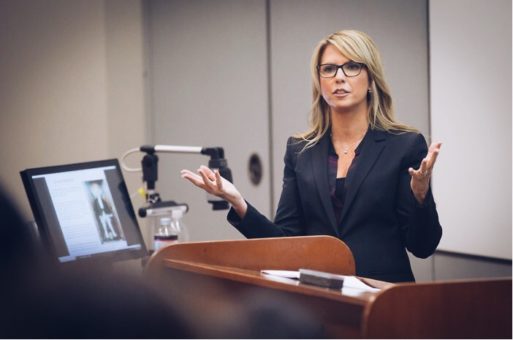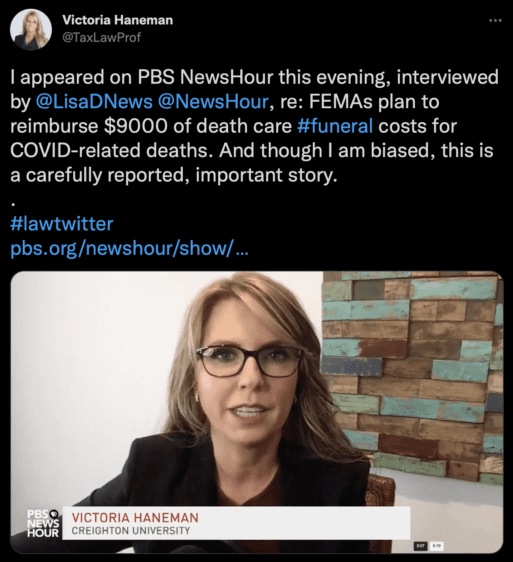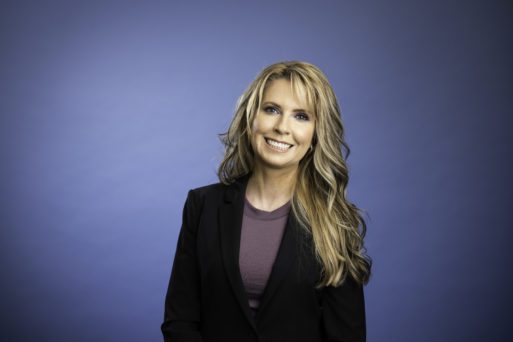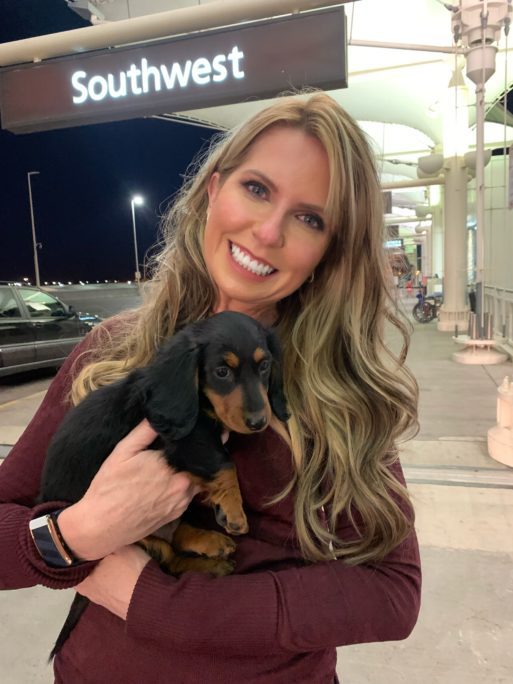
Victoria Haneman lectures on proposed changes in the tax law to help consumers pay for their funerals
Professor Victoria Haneman is the Frank J. Kellegher Professor of Trusts & Estates at Creighton University School of Law. She teaches courses addressing various aspects of taxation, wills, trusts and estates, and business associations. Professor Haneman, who tweets @TaxLawProf, is a regularly engaged expert by media including PBS NewsHour, National Public Radio, The New York Times, Wired, and Forbes. Victoria Haneman’s recent scholarship focuses on taxation, the death services industry, and student loan debt.
Professor Haneman has published over 20 scholarly papers, many of which discuss the need for change in the area of death and how we pay for it. Her essays, “Tax Incentives for Green Burial” (Nevada Law, 2020) and “Funeral Poverty” (University of Richmond Law Review, 2021) deal directly with how tax law can change the way we care for our dead. Her latest paper, “Prepaid Death,” is forthcoming in the Harvard Journal on Legislation.

Tweet from May 5, 2021
Why have tax law and its intersection with paying for death become one of your passions?
As a tax law professor who deals with wills and trusts along with estate planning, I’m right at the nexus to deal with death and the financial situations surrounding it. I come from a venture capital and investment background, which is a disruptive technology background. However, when I started researching and writing in the “death space,” I realized that it’s remained – what we jokingly refer to as – functionally unchanged for more than a century. From an economic standpoint, I have to ask, why is that? It’s deeply troubling. Just like if you worked in emerging markets and if you saw a market that had completely stalled, there’s always a reason for it. My work is looking to change that – to “unstall” this death space market.
How is financial equity related to death care expenses?
The average funeral costs, not including cemetery fees, $7,000. The average American has a hard time bearing a $400 unplanned expense. These numbers are discordant. Yet we have no tax subsidies to help people save for unexpected death costs. I think the pandemic really brought this issue home to a lot of people who suddenly had to deal with unplanned death care expenses. I was speaking to a reporter the other day who told me of a woman who lost her small business due to so many of her family members passing away from COVID. She couldn’t keep up with the funeral expenses and her business. She has applied to the COVID burial reimbursement from the government, and I’m sure she’ll receive it, but they are so behind due to all the deaths over the past year and a half. She just couldn’t keep her business open because she had to pay for the funerals now and couldn’t wait for the reimbursement.

What solution do you propose in your latest paper, “Prepaid Death“?
The easiest way for a consumer to bear an unexpected expense is to have access to reliable credit instruments and/or to spread the expense over time and/or to save in advance. It’s difficult to save for an expense that you, yourself, will never enjoy. That’s what’s difficult about getting people to save for death. How can we nudge consumers to save for something they’ll never enjoy? We have seen the use of tax code to be really effective in nudging consumer behavior. If there’s a way to supply tax-incentivized accounts through employers, in the same way that we can save for healthcare expenses – on a pre-tax basis – the tax code will serve as a telegraphing function to get information about death care savings out there.
My proposal is to allow consumers to save for death on a pre-tax basis. They will be able to set up an account with a funeral home of their choice (with an option to port the account if they move). They will save on a monthly basis for their future funeral payments. If the tax code can change and people begin pre-paying for death, funeral homes will want those dollars. They will create FSA-approved funeral packages that the consumer can choose from and save for. Even though the funeral homes will have to agree to allow portability, most will take the risk since the majority of people never move more than a town or two away from where they currently live.
Why has this become your life’s work?
I have spoken at a lot of events and conferences in my career, but only when I talk in the death space and how we pay for it do people come up to me in tears at the end. There are no law professors who have a tax background who are writing on the economics of the death industry and also teach wills and trusts law. I’m able to look at all of this from a different perspective. People share how exploited they felt by the death care industry when their loved ones died. They’re experiencing emotional trauma and can be taken advantage of by vague pricing and pressure to make quick decisions. That’s not to say that there aren’t good places doing good work out there, but at the end of the day, it’s a business, and the people walking through their doors are inventory.
At the end of my lectures, people share, “We really need this work to be done.” It’s motivating. It means something, unlike a lot of other research that I have done. Publishing papers on the death care services industry and the impact that it has on the consumer can potentially revolutionize and disrupt the entire industry in a way that would be quite positive for consumers.

Even though the tax incentives do not yet exist, what advice would you give to people today?
Everyone should establish a dedicated savings account that is set aside to pay for their own death care expenses. You can create a Payable on Death account, where you name a person who will be responsible for your after death care. You can have a plan in place that you discuss with your chosen designee for what you want to happen in the event of your death. A POD account is the most flexible option that consumers have at this time.
Those who remain behind not only have to find the funds to pay for basic after death care, they are also faced with so many decisions and, sometimes, guilt about what specific items and services to use for the person who died. People can feel guilty about not being able to do enough to honor the person who’s died. If you have saved and planned for your own death, you give a gift to those you love. They don’t have to wonder what to purchase or how to fund your farewell.
There are so many cool options, including green burials choices – like becoming compost for the garden or being buried in a coral reef – so planning ahead gives everyone the chance to research how they’d like to end. Believe it or not, mushrooms are trending in the death space – mushroom coffins, mushroom suits! The more we choose to think of our own death and plan for it, the lighter of a burden our future end will be on those we leave behind.
Editor’s note: This interview has been edited for length and clarity.

 How Tax Law Changes Could Impact the Way We Pay for Death
How Tax Law Changes Could Impact the Way We Pay for Death


 First the Wealth Gap, Now the U.S. Has a Growing Health Gap
First the Wealth Gap, Now the U.S. Has a Growing Health Gap

 Our Annual Seven Holiday Gifts for Someone Who Is Grieving, 2024 Edition
Our Annual Seven Holiday Gifts for Someone Who Is Grieving, 2024 Edition














